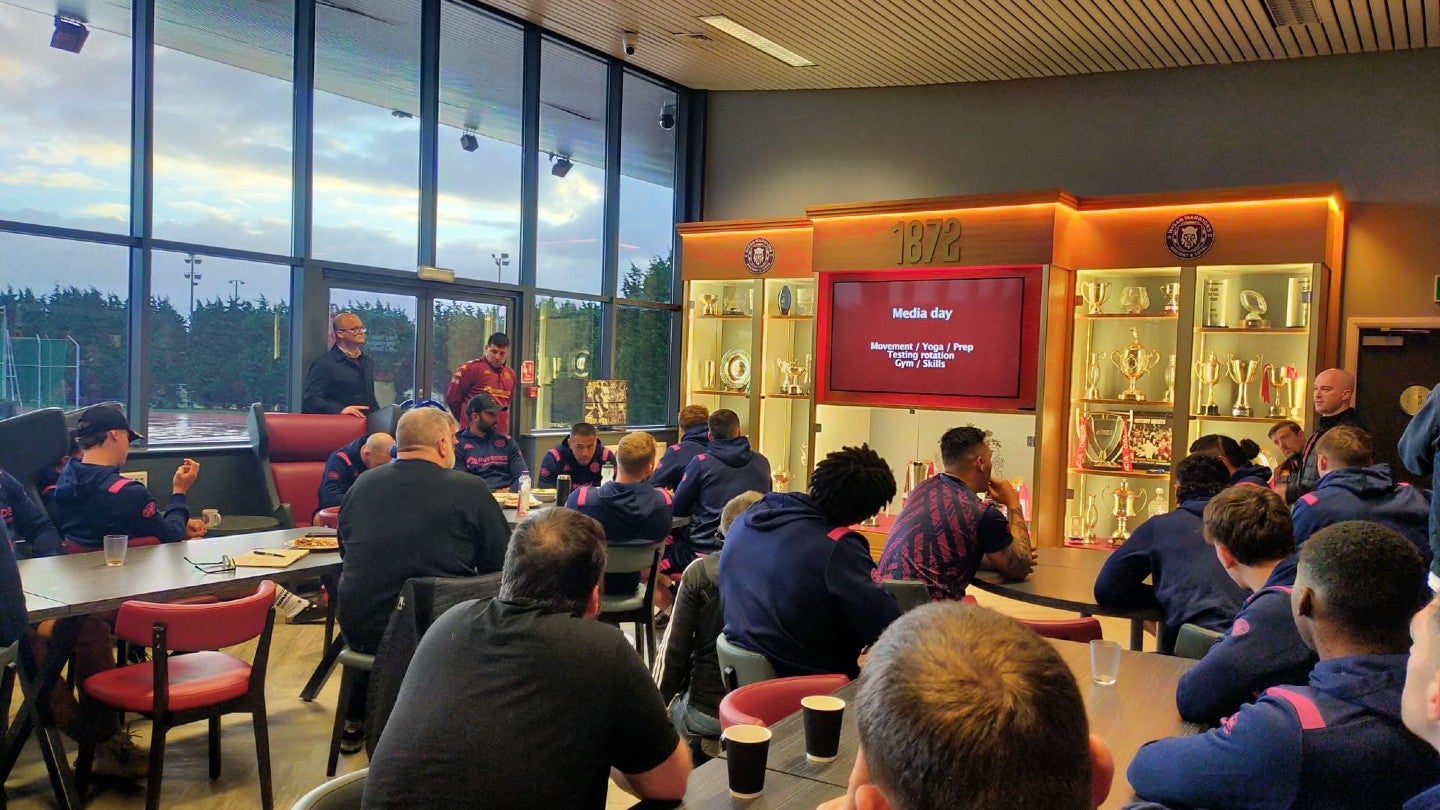
When data and media mogul Mike Danson bought Wigan Athletic in June, saving the football club from a winding-up order and financial oblivion, fans, players and analysts viewed it as a local billionaire doing good by his community.
When Danson purchased 100% ownership of rugby league outfit the Wigan Warriors on 1 December 2023, it signified the beginning of a wider growth strategy built on the two clubs and the town itself.
Danson’s “reunification project”, in the words of Warriors chief executive Kris Radlinski, aims to forge a “sporting powerhouse” by bridging the divide between Wigan’s football and rugby fans.
It may be a town that lives and breathes both sports, but Wigan has often been split into two camps: Warriors fans and Athletic fans, or ‘Latics’.
Despite sharing the same stadium, which Danson also owns, there is a recognition that fans of the two clubs have not always been on the best terms.
“Since being a kid, that [Athletic-Warriors rivalry] is all I’ve ever known,” says Wigan-born Warriors captain Liam Farrell.

US Tariffs are shifting - will you react or anticipate?
Don’t let policy changes catch you off guard. Stay proactive with real-time data and expert analysis.
By GlobalData“It’s quite sad really, for a town that’s had so much success with rugby and football. I remember in 2013 when we won the Challenge Cup and double and Athletic won the FA Cup, the celebrations were unbelievable.”
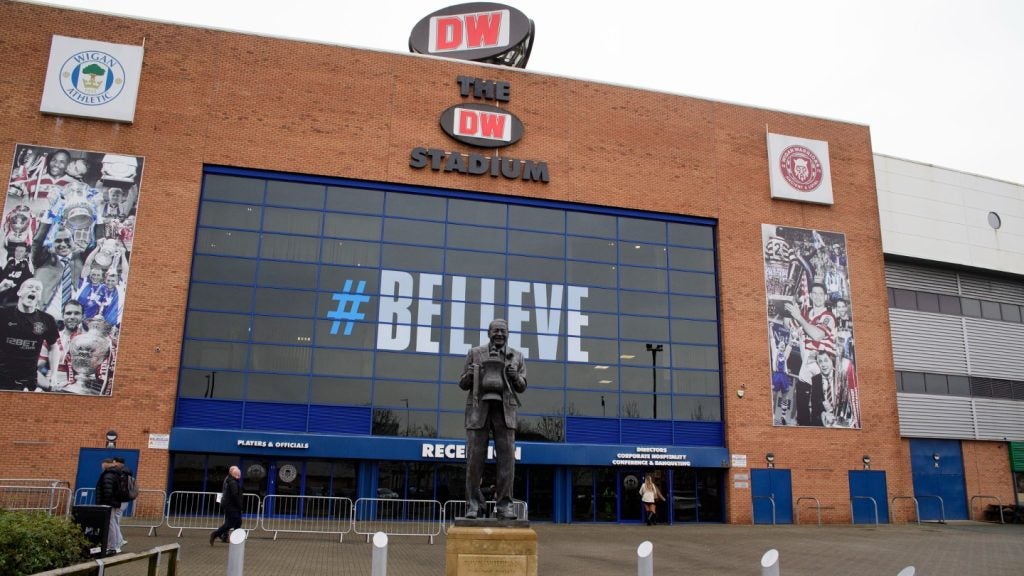
Mutual hostility between Wigan’s football and rugby fans stems from grievances on both sides.
“Watch out Warriors, the town is turning blue” is regularly a favorite chant of Latics fans. At the same time, comments “made by the previous owner of the club riled up Wigan Athletic fans for 30 years,” according to Radlinski.
“In that respect, it’s a broken town,” says Radlinski. “It’s toxic. We need to fix it, and I want Wiganers to support both teams.”
The initial signs are strong.
Wigan Athletic are now above the relegation zone and rebuilding with a promising young team under manager Shaun Maloney, while the Warriors are riding a wave of momentum following their victory against Catalans Dragons in the Super League Grand Final last October.
Maloney and Warriors’ Head Coach Matt Peet have also “struck up a really strong friendship” and are “very similar characters,” Radlinski adds.
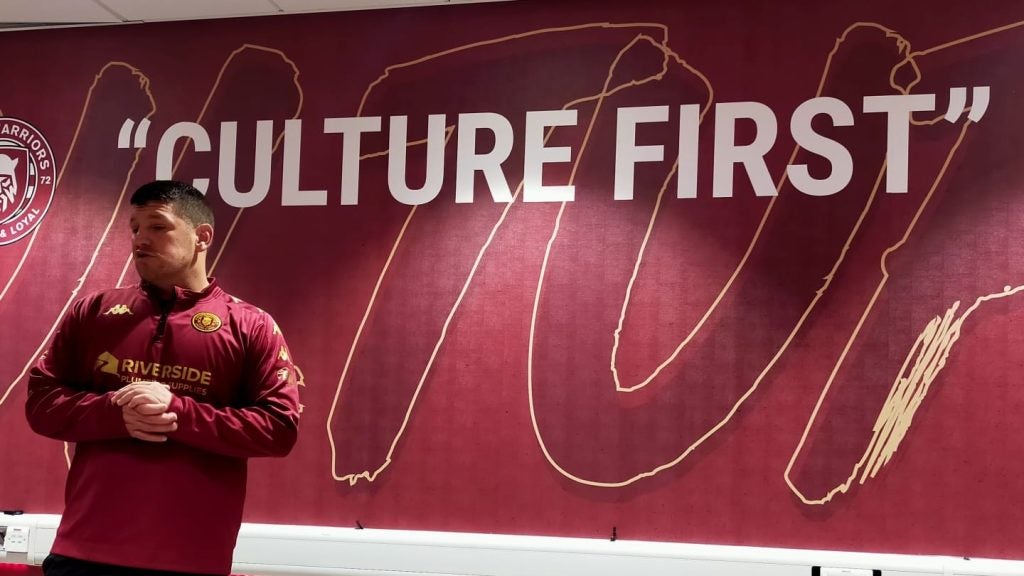
But not all has been plain sailing.
Both clubs have struggled financially in recent seasons following a pandemic-induced dip in gate receipts due to games played behind closed doors at the DW Stadium.
The Warriors also posted an operating loss of £1.75m ($2.22m) for the year ending November 2022.
As Danson, Radlinski and the rest attempt to reunify the fanbases of both teams and boost revenues – and rugby league begins to globalize – how will both Wigan Warriors and Athletic preserve the community-led identity on which they are built?
Far from “poor little Wigan”
Amidst a backdrop of blaring music, the flash of cameras, and the clang of metal weights, the energy inside Wigan Warriors’ multi-million-pound training facility is palpable.
The buzz intensifies as news circulates among the attending press that tickets for the Warriors’ World Club Challenge home clash against Australia’s Penrith Panthers have just sold out. 25,000 fans will be in attendance when the Warriors look to secure a record-equalling fifth title on 24 February.
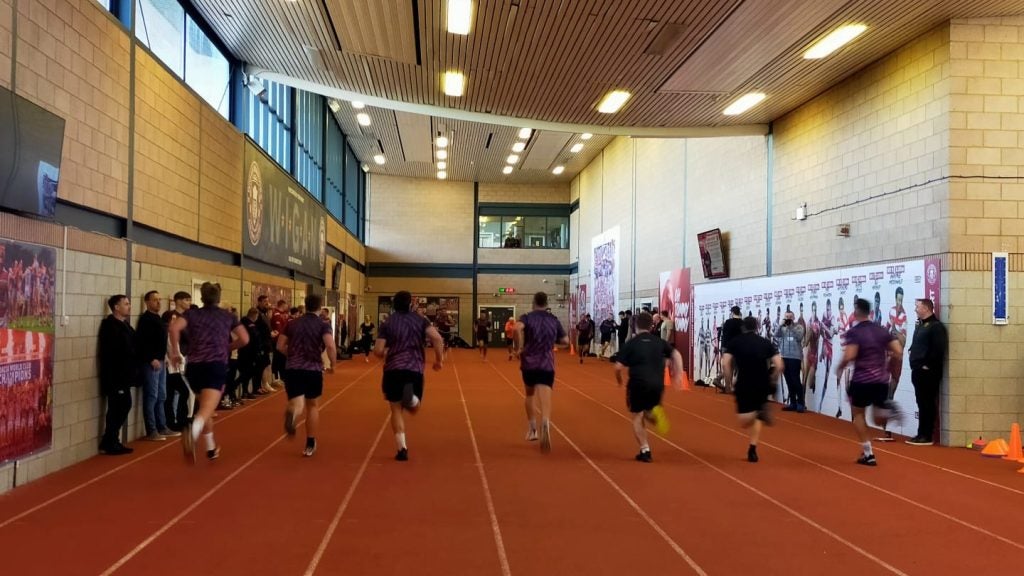
Warriors fans are buoyed with excitement at such a prospect, having voiced their anger when a previous high-profile tie against Catalans Dragons was relocated to Millwall’s The Den.
“We needed that presence in London – it’s a hugely popular market, with data from the recent Rugby League World Cup showing that so many ticket buyers were from that region,” says Radlinski. “
“But by focusing on the capital we’re taking a league game away from hardcore Wigan fans who have been working hard all week, and you get a hell of a lot of stick.”
Local fans have voiced concerns as talks of future World Club Challenge matches being held in Las Vegas have ramped up and the Rugby Super League’s commercial director Rhodri Jones has reportedly expressed interest.
In a town where one in five children live in poverty, Wigan’s two sporting sides represent a distraction and source of pride.
Based on Danson’s desire to “leave a legacy in the town which has an impact, socially and economically,” in head coach Matt Peet’s words, Athletic and Warriors players regularly spend time at school assemblies, local coaching clinics, and hospital visits.
“This club is built on the hard work, grit, and industry of the people in the town,” Peet adds. “It’s always been a town of innovation and a club that’s had superstar players and signs big names.”
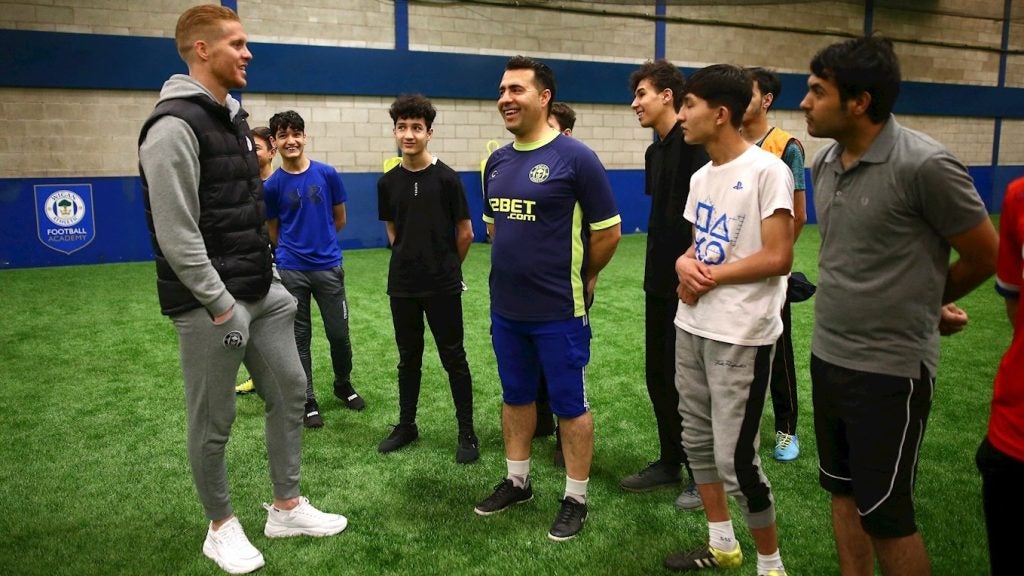
“It’s not that we’re poor little Wigan”, Peet continues. “We’ve always been looking to break new ground, whether that’s signing players from [rugby] union, breaking transfer fees, or taking the game overseas. Big steps don’t faze us.”
In conversation with the players
This is apparent to both Wigan-born Peet and Auckland-born, Sydney-raised Willie Isa, Wigan Warriors’ second row.
“One thing I’ve learned about England is they [the fans] are very territorial and very passionate about their town”, Isa says at a Wigan Warriors media event last month.
“Hopefully we represent what the people of Wigan represent – hard-nosed, proud, and humble people.”
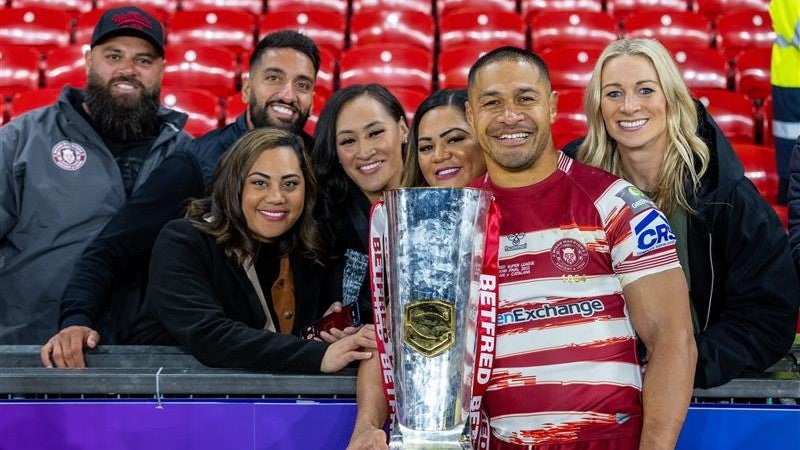
When he first joined the Warriors, Isa’s initial impression was that perhaps Warriors fans’ tribal support for their side was “a bit too extreme.”
“The fans support Wigan Warriors to the death,” says Isa. “But when people are working to save money and all they look forward to is a Warriors win or entertainment, then you realize this means more to them and I’m in a privileged spot. I’ve got to make sure I do that justice.”
The weight of that privilege will be felt most heavily by those players who came up through Wigan’s local recruitment system.
“I started at Under 14s with a scholarship, then moved into the academy just after 16,” half-back Jack Farrimond says.
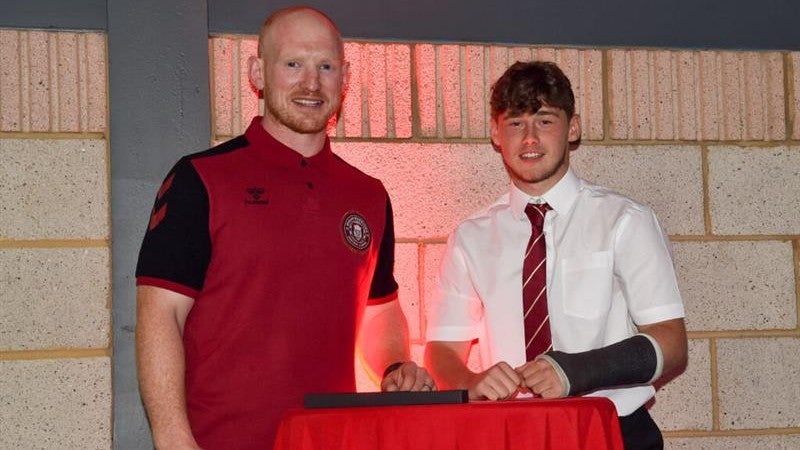
The young half-back’s successful transition through the Warriors’ academy is a sign of encouragement for other Wigan-born players – and fans.
But it is also key to the Warriors’ commercial success.
“Bringing junior players through to play for our first team is ultimately a great business model in a salary cap sport, where you need a conveyor belt of talent,” says Peet.
“Seeing players like Harry Smith, who’s come through our system, or Ethan Havard, who was brought up not far from here, playing with Bevan French, Jai Field, and Abbas Miski – it’s what this club should be about. And our town loves to see homegrown lads.”



